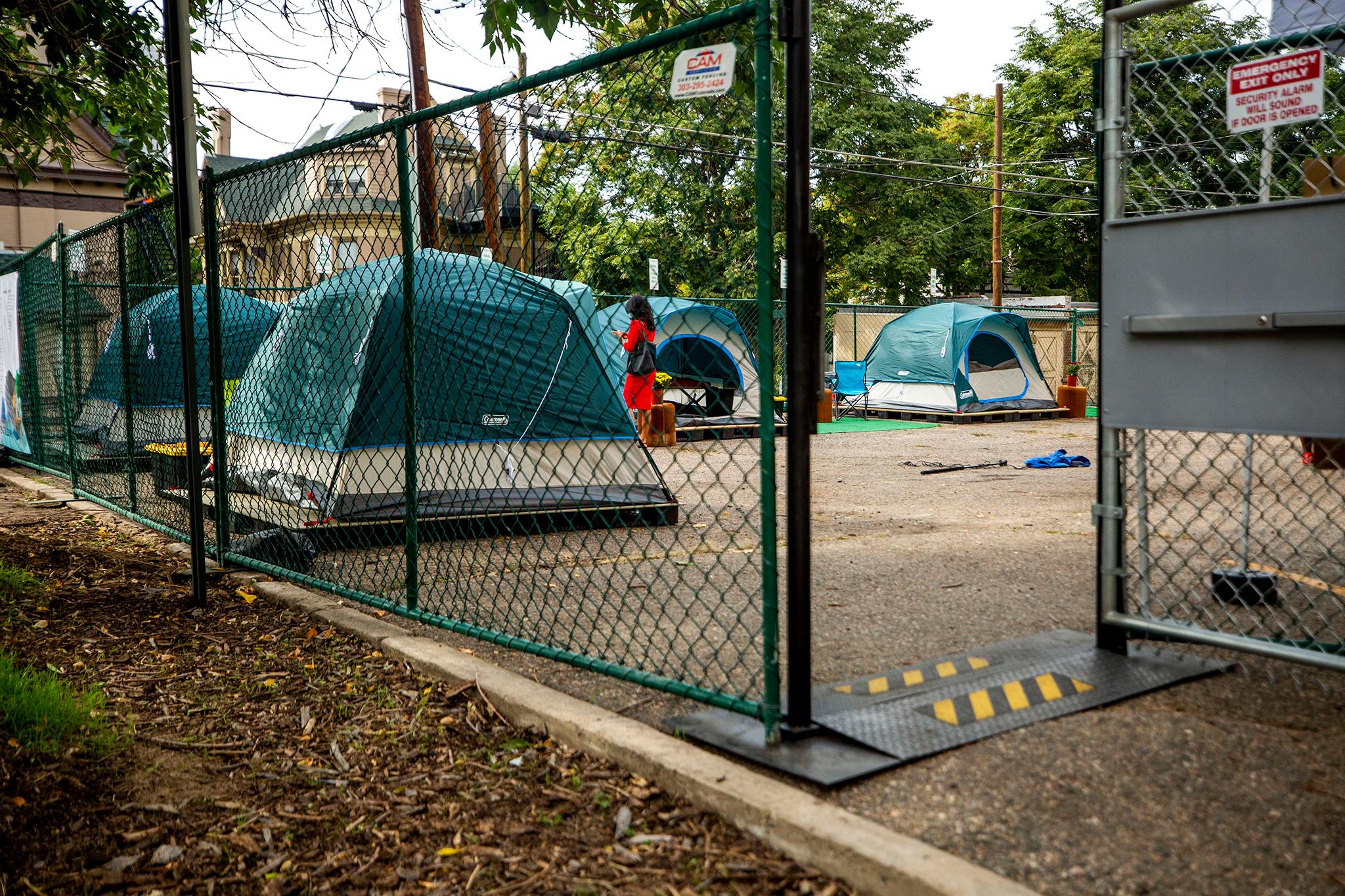The city is asking organizations that want municipal money to manage temporary sanctioned camping in Denver to describe where they might set up such sites for people experiencing homelessness and to explain how they would get neighbors to accept the idea.
A nonprofit that has private funds for a sanctioned camp has struggled for months to find a site for what also is known as a safe outdoor space, envisioned as a place that would be staffed and regularly cleaned, and offer people bathrooms and connections to housing, health care and other services. Twice since Mayor Michael Hancock announced in June that Denver should have city-sanctioned camping during the pandemic, locations have been publicly identified only to be withdrawn from consideration because of opposition in the community.
The director of the nonprofit poised to open a camp, the Colorado Village Collaborative, said it will respond to a formal request issued Wednesday offering city funding for sanctioned camping and other alternatives to shelter. The deadline for proposals is Nov. 13. Cole Chandler, director of the Colorado Village Collaborative, said in an interview Thursday that his nonprofit could establish one sanctioned site with the private funding it has already raised. City funding would allow the Colorado Village Collaborative to open a second site, Chandler said. City officials have spoken of three sites in total, each serving up to 60 people.
Nearly 1,000 people were sleeping on Denver's streets, according to the last annual survey of homelessness in Denver. Service providers have been concerned that the number has increased since that January count because of the economic impact of the coronavirus.
Chandler said the city request for proposals meant more organizations could get involved in the effort to provide shelter, and it opened up possibilities such as designated parking areas for people living in their cars.
But "I'm concerned that this process is going to take forever," Chandler said. "We want to be up and running."
Britta Fisher, who heads the city's housing department, said that the process of reviewing proposals and selecting groups to operate sites would likely take until December. Contracts would run through at least the end of 2021 and would be financed with some of the $450,000 that City Council recently approved for sanctioned camping. Further funding could come from $500,000 in next year's budget earmarked for outreach to people living on the streets, Fisher said.
Chandler could not say when or where the Colorado Village Collaborative would open a camp. After the initial setbacks, the collaborative has embarked on a community outreach effort to build support. The outreach has included setting up a mock uninhabited camp for a weekend in a church parking lot in Capitol Hill.
Fisher said the Colorado Village Collaborative's experience has been instructive. She said the city needed to know how providers "plan to engage the community."
The request from the city asks service providers to say whether they would seek city land for a camp or if they had "demonstrable site access for use of a privately held site." Applicants also were asked to "describe how your program will manage, mitigate, and respond to any negative community impacts to neighbors of a safe outdoor space."
Fisher said, "Whether it is housing, shelter or an outdoor space, we continue to grapple with how we can be neighbors with our unhoused neighbors."
The city had no sites in mind when it issued the request for proposals, Fisher said. The request was not limited to any part of Denver.
City Councilwoman Candi CdeBaca said in a statement Thursday that it was her understanding that the request for proposals was for a site in her District 9, where the two sites that were proposed and then withdrawn were located. District 9 already has many of the city's shelters.
While Hancock continues to insist that the focus should be on getting people indoors, he said that during the COVID-19 public health emergency the city needed outdoor places where people experiencing homelessness could find shelter. In Wednesday's request for proposals, the Hancock administration said "the goal of safe outdoor spaces is to lower the number of people living in existing unsanctioned camps in Denver and provide them with a managed, safe sleeping location to reduce risks associated with COVID-19."
"With the public health crisis of COVID-19 and other communicable diseases putting residents in crowded encampment situations at risk, additional supports are needed to support those who are experiencing unsheltered homelessness," the city said in its request for sanctioned camping proposals.













